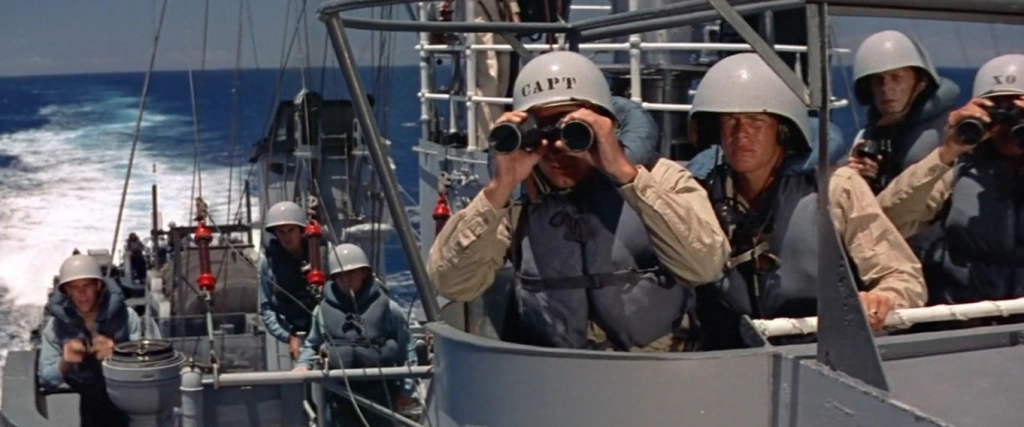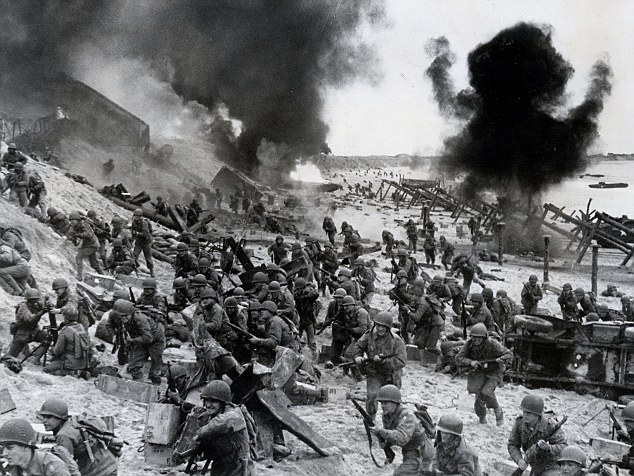The Battle of Britain (1969)
DIRECTOR: Guy Hamilton
CAST:
Christopher Plummer, Susannah York, Robert Shaw, Michael Caine, Ian McShane, Trevor Howard, Michael Redgrave, Sir Laurence Olivier, Kenneth More, Ralph Richardson, Patrick Wymark, Edward Fox, Curt Jürgens, Karl-Otto Alberty, Manfred Reddemann, Alexander Allerson, Harry Andrews, Michael Bates, Hein Reiss, Rolf Stiefel
REVIEW:
This British-German co-production from director Guy Hamilton was intended as an epic war classic paying tribute to the courageous pilots of the Battle of Britain, but is unfortunately a largely muddled production boasting the usual large all-star cast and some excellently choreographed air battle sequences but lacking much in the way of focus, clarity, storyline, or human interest. Continue reading
The Bridge at Remagen (1969)
DIRECTOR: John Guillermin
CAST:
George Segal, Ben Gazzarra, Robert Vaughn, Bradford Dillman, E.G. Marshall, Hans Christian Blech, Joachim Hansen, Peter Van Eyck, Heinz Reincke, Richard Münch, Günter Meisner.
REVIEW:
Director John Guillermin and an American and German cast brings us this exciting, fast-paced, and remarkably even-handed account of the desperate struggle of two small groups of men, the Americans to capture a bridge leading into Germany, and the Germans to destroy it, in the final months of WWII in Europe. Continue reading
La Battaglia di El Alamein/The Battle of El Alamein (1969)
DIRECTOR: Giorgio Ferroni
CAST:
Frederick Stafford, Enrico Maria Salerno, Robert Hossein, Michael Rennie, George Hilton, Gerard Herter, Marco Guglielmi
REVIEW:
We don’t usually hear much about the Italians in WWII; the Germans and Japanese were considered the big guns on the Axis side, with the Italians kind of tagging along. The main reason for this is that there simply isn’t much to say. Continue reading
The Longest Day (1962)
DIRECTOR:
American scenes: Andrew Marton
British scenes: Ken Annakin
German scenes: Bernhard Wicki
CAST:
Americans: John Wayne, Robert Mitchum, Henry Fonda, Richard Beymer, Rod Steiger, Sal Mineo, Roddy McDowall, Eddie Albert, George Segal, Paul Anka, Red Buttons, Fabian, Mel Ferrer, Steve Forrest, Robert Ryan, Robert Wagner, Stuart Whitman
British: Richard Burton, Peter Lawford, Kenneth More, Sean Connery
Germans: Curt Jürgens, Hans Christian Blech, Heinz Reincke, Paul Hartmann, Richard Münch, Wolfgang Preiss, Peter Van Eyck, Werner Hinz, Gert Fröbe
French: Irina Demick, Christian Marquand, Georges Wilson
REVIEW:
The king of the ’60s and ’70s epic WWII films. One of the most colossal productions ever mounted, and a pet project of high-rolling Hollywood mogul Darryl F. Zanuck, The Longest Day was an adaptation of journalist and author Cornelius Ryan’s book of the same name, a 180 degrees chronicle of D-Day from compiled interviews from both Allied and German participants, as well as French Resistance agents and civilians. Like Ryan’s book, the movie tells the story of the pivotal Allied invasion of Nazi-occupied France in June 1944 from every conceivable angle, from the Allied commanders risking it all on a nail-biting roll of the dice, to their harried German counterparts across the English Channel struggling to organize an effective counterattack amid hopeless confusion, to the common soldiers fighting it out on the beaches and in the hedgerows, to the French Resistance fighters doing their part to aid the liberation of their country, to the French civilians, overjoyed even as they are plunged into the middle of one of the most famous battles in history. This is a boon to history buffs with a strong interest in the subject matter, while those less enthralled might uncharitably refer to The Longest Day as “the longest movie” (it runs a formidable three hours). It’s not for everyone, and it lacks the intensity and immediacy of smaller-scale, more character-driven onscreen depictions of the D-Day invasion from Saving Private Ryan or Band of Brothers, but for history buffs seeking a comprehensive overview of D-Day, or fans of classic ’60s and ’70s war films, this is an epic “classic” the way they don’t make them anymore. Continue reading
The Enemy Below (1957)

DIRECTOR: Dick Powell
CAST: Robert Mitchum, Curt Jurgens, Theodore Bikel, David Hedison, Frank Albertson, Russell Collins, Kurt Kreuger
REVIEW:
From actor-turned-director Dick Powell, adapted by Wendell Mayes from the 1956 novel of the same name by Denys Rayner, comes this fairly small-scale but entertaining cat-and-mouse game between two men—-the captain of an American destroyer, and the captain of a German U-Boat—-in the South Atlantic during WWII.
Continue readingThe Desert Fox: The Story of Rommel (1951)

DIRECTOR: Henry Hathaway
CAST:
James Mason, Jessica Tandy, Cedric Hardwicke, Leo G. Carroll, Luther Adler, Everett Sloane, William Reynolds, Richard Boone
REVIEW:
Field Marshal Erwin Rommel was undoubtedly Germany’s most famous General of WWII and continues to be regarded as one of history’s great military commanders. Gaining fame in North Africa, where his outnumbered Afrika Korps divisions pushed the British back for two years and nearly drove them off the continent, the Desert Fox was held in awe even by those fighting against him, both for his battle prowess and for his famously strict adherence to the rules of war. Recalled back to Germany before the end in Africa, he did not share the fate of his captured men, although he would have been more fortunate if he had. His star never again reaching its former heights after the African campaign, he tried and failed to defend Normandy against the Allied invasion and died a few months later, officially of injuries suffered when his staff car was strafed by Allied planes little over a month after D-Day. Only after the war did both the Allies and the German people learn the more complex and dramatic truth: Hitler had forced his once favorite General to commit suicide when information regarding his involvement in or at least knowledge of the conspiracy to overthrow him reached his ears. While Rommel has been portrayed onscreen in a number of war films, by far the best-known and most extensive depiction came in 1951, only seven years after his death, in the form of Henry Hathaway’s The Desert Fox: The Story of Rommel. That such a sympathetic—indeed, practically sanctified–portrayal of Rommel could be made so soon after the end of the war is telling of the high regard in which Rommel was held even by his enemies. Unfortunately, a disjointed and episodic narrative structure, stilted dialogue and performances, and an interminable amount of WWII stock footage results in a mediocre production that doesn’t really do its subject justice. Continue reading
